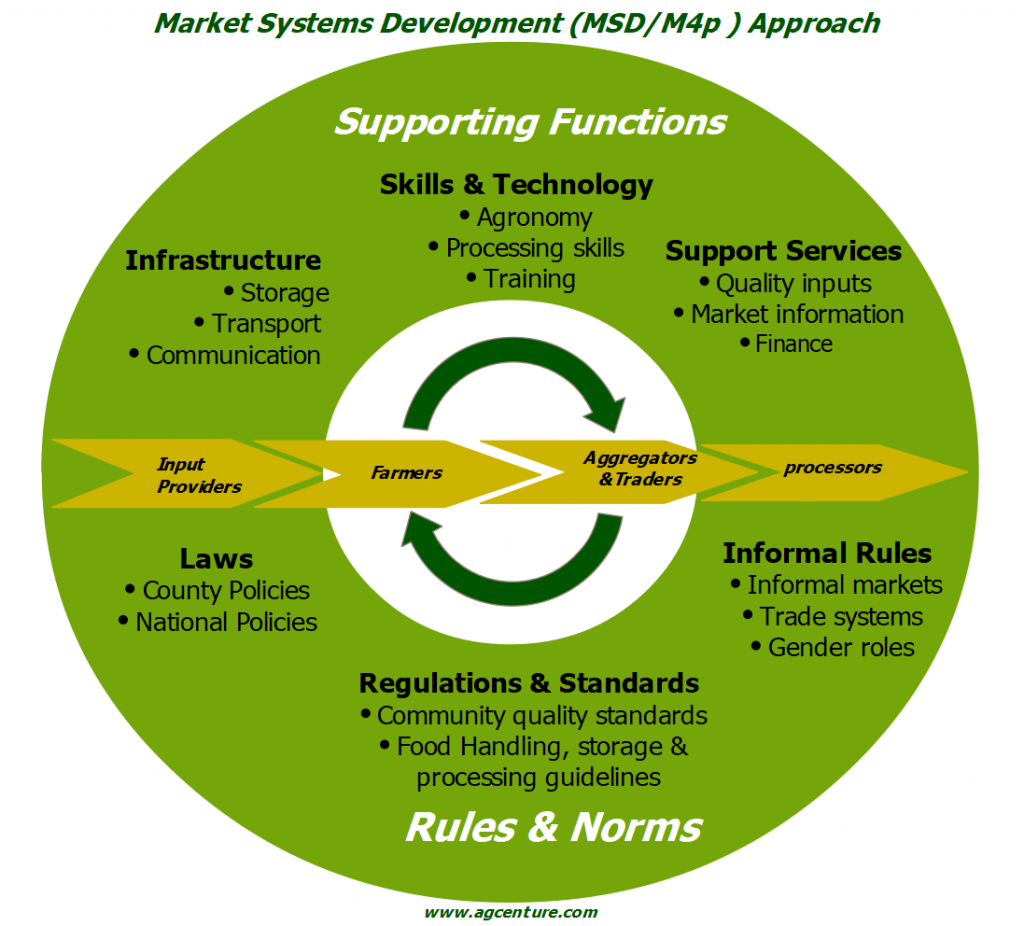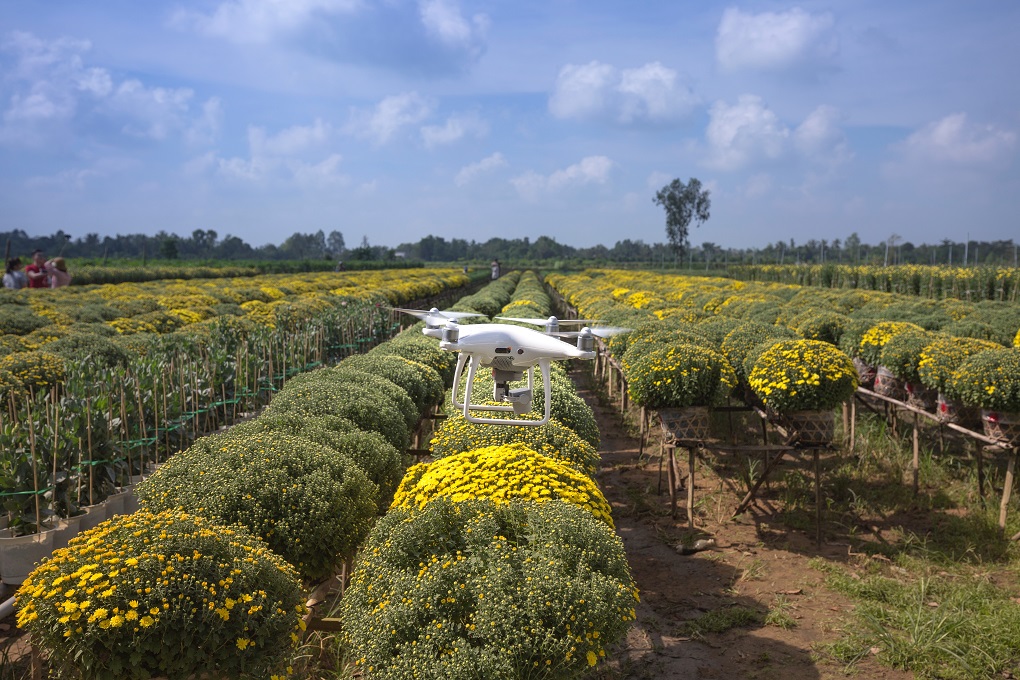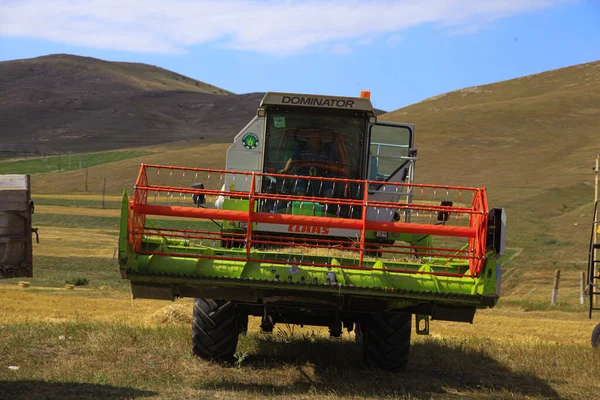In today’s rapidly changing world, the future of agriculture & rural development in Africa lies in transformational approaches that can help the sector overcome the challenges it faces. At Agcenture Consult, we believe that the key to unlocking Africa’s agricultural potential is through innovative approaches such as Making Markets Work for the Poor (M4P), smart farming, and other cutting-edge methodologies.
Agriculture has been the backbone of many African economies, providing livelihoods for millions of people. However, it is often faced with numerous challenges that hinder its growth and development, including poor infrastructure, climate change, and limited access to finance and technology.
To address these challenges, innovative approaches have emerged that are transforming agriculture and rural development in Africa. Market-oriented approaches, such as Making Markets Work for the Poor (M4P), are helping to connect smallholder farmers to markets, increase their incomes and improve their livelihoods.
Smart farming, on the other hand, is leveraging technology and data to enhance agricultural productivity, reduce post-harvest losses, and improve food security. This approach is transforming traditional farming practices and creating new opportunities for farmers to increase their yields and improve their profitability.
Other approaches such as value chain development, climate-smart agriculture, and farmer field schools are also making a significant impact in transforming agriculture and rural development in Africa. At Agcenture Consult, we are committed to working with farmers, policymakers, and other stakeholders to promote and implement these approaches, and to support the sustainable growth of agriculture and rural development in Africa.
This post covers some of these innovative approaches in brief.
Market Systems Development (MSD/M4P) Approach
Our uniqueness in achieving sustainable change in agribusiness is the use of market systems development approach. Also known as making markets work for the poor (M4p) approach, it assumes a systemic wide view and takes an all-inclusive manner strategy.

It has three focus areas.
- There are many factors that are necessary to achieve efficient transactions in exchange for agricultural goods and services between smallholder producers, their input suppliers and food traders in the local and regional food markets.
- These transactions are facilitated by a mix of supporting functions such as infrastructure, support services and ample skills and technology.
- The regulatory environment is governed by formal and informal rules and norms. There is the participation of both public and private players across the value chain from producers to consumers.
This approach assesses each stage of the target agricultural value chains in totality. This ensures that all direct and indirect factors that have a bearing on the success of the development project or assignment are taken into consideration. The proposed agribusiness solution is likely to be more inclusive and sustainable for smallholder farmers and the private sector in the transformed, highly specialized and beneficial value chain.
Value Chain development
Value chain development is a strategic approach to enhancing the competitiveness, efficiency, and profitability of a particular sector or industry. It involves identifying and addressing the challenges and bottlenecks that prevent businesses and producers from fully participating in the value chain, which is the series of activities involved in bringing a product or service from conception to market.
The goal of value chain development is to promote growth and economic development by creating better access to markets, improving product quality, reducing transaction costs, and enhancing the overall efficiency of the value chain. This approach typically involves close collaboration among producers, processors, traders, service providers, and other stakeholders in the value chain.
Value chain development can be applied to a wide range of industries and sectors, including agriculture, manufacturing, and services. In the context of agriculture, value chain development focuses on enhancing the productivity, efficiency, and profitability of agricultural production, processing, and marketing activities.
Some of the key components of value chain development in agriculture include:
- Value chain mapping: This involves identifying and analyzing the various stages of the value chain, as well as the key actors and relationships among them.
- Value chain upgrading: This involves improving the efficiency and effectiveness of value chain activities through the introduction of new technologies, processes, and management practices.
- Capacity building: This involves providing training and technical assistance to value chain actors to help them improve their skills and knowledge.
- Market development: This involves identifying and creating new market opportunities for value chain actors, as well as improving their access to existing markets.
- Policy and institutional support: This involves advocating for policies and institutional arrangements that support value chain development, such as trade policies, investment incentives, and regulatory frameworks.
Value chain development is a powerful tool for promoting economic growth and poverty reduction in developing countries, particularly in rural areas. By enhancing the competitiveness and profitability of value chain actors, it can help to create new jobs, increase incomes, and improve livelihoods for millions of people around the world.
Smart/Digital Farming

Smart farming is a concept of getting more yields using fewer resources such as land. It promotes the use of the latest technologies, data analytics and innovations such as the use of GPS, soil and moisture sensors and data management. By automating farms and agribusinesses, farmers would make food production and marketing operations efficient and profitable.
We believe by incorporating digital farming would enhance farmers’ inefficiency. In this area we focus on five areas; Adoptiong of E-commerce, Automation through use of Management information systems, use of mobile applications in weather forecating, field scouting and logiscitc and other apllicable areas. Other areas are of agricultural websites and blogs to expand your outreach and finally, review, design and ececution of digital strathegy for your farm.
Climate-Smart Agriculture (CSA)

Climate change is the worst risk of modern agriculture. Droughts, Floods and erratic weather conditions have become more severe in the recent past. This is risking the food security and incomes of millions of farmers. We, therefore, advocate for adoption of the latest innovations and technologies in Climate-smart farming solutions to sustainably increase productivity, enhance resilience and reduce GHGs. These solutions include
Food Traceability Systems
Food traceability will no longer be a choice but a necessity in agri-food systems. This has arisen from many incidences of human health from eating contaminated foods with pathogens, pesticides and hormones. It will help you access larger markets and improve food safety and health for your consumers.
It’s important for; tracking food products from farm to fork, isolating unsafe food threats, recalling contaminated products when need arise and compliance with international and domestic food safety standards and regulations.
Agcenture approach in promoting food safety include;
- Advisory on best traceability systems, solutions and investments for your entire food value chain.
- Expand consumers’ awareness of food safety issues through training.
- Strengthen market actors capacity to comply with domestic and international food safety standards and regulations.
- Building institutional capacity to administer food safety systems
Food Systems Approach
A food systems approach involves looking at the entire food system, from production to consumption, and understanding the interconnectedness of its different components. This approach recognizes that food is not just a commodity, but a complex web of activities, institutions, and actors that shape the way food is produced, distributed, and consumed.
The food systems approach emphasizes the need to work across sectors, disciplines, and actors to address the challenges facing the food system, including issues related to food security, nutrition, health, sustainability, and social equity. It involves engaging a wide range of stakeholders, including farmers, processors, retailers, consumers, policymakers, and civil society organizations, to develop more holistic and integrated solutions.
At the heart of the food systems approach is the idea of promoting a sustainable and resilient food system that can provide healthy and nutritious food for all, while also being environmentally and socially sustainable. This requires a focus on improving the efficiency and effectiveness of the entire food system, from production to distribution to consumption.
Some of the key strategies involved in a food systems approach include;
- Promoting sustainable agriculture practices
- Strengthening local and regional food systems
- Improving food safety and quality standards
- Reducing food waste and loss
- Promoting healthy and sustainable diets.
By adopting a food systems approach, stakeholders can work together to create a more equitable and sustainable food system that benefits all.
Commercial Farming

The bulk of Africa’s (80% in Kenya) agriculture is practised for subsistence purposes. Consequently, it remains underdeveloped with inadequate investments and efficiency. our approach treats agriculture as a commercial venture (agribusiness) with market actors seeking to minimise their costs of operation and maximise their profits.
Our approaches in agribusiness are;
- Enhance productivity and efficiency for farmers manufacturers, retailers, and wholesalers by the latest methods like automation.
- Minimize risks through machinery, livestock and crop insurance.
- Improve investments in the sector by seeking appropriate agri-financing including credit and grants
- Entrench profitability policies for our clients through diversification and value addition in your operations.
Farmer Field Schools (FFS)
Farmer Field Schools (FFS) is a participatory learning approach used to build the capacity of small-scale farmers in agricultural production and natural resource management. It is a group-based approach that allows farmers to experiment with new techniques, learn from each other, and build their knowledge and skills.
In a typical FFS, a group of farmers meet regularly with a facilitator, who is usually an agricultural extension agent. The group usually consists of around 20 to 30 farmers, who work together to identify and address their common challenges. Through practical activities and hands-on learning, the farmers gain a deeper understanding of agricultural production, natural resource management, and other related issues.
The FFS approach has been used successfully in many parts of the world, particularly in Africa and Asia, to help farmers improve their yields, reduce post-harvest losses, and enhance their livelihoods. By building the capacity of farmers to manage their own production and natural resources, FFSs contribute to the development of sustainable agriculture and rural development.
Some of the key benefits of the FFS approach include the promotion of farmer-led innovation and experimentation, the strengthening of social capital and local institutions, and the empowerment of women and marginalized groups. FFSs also encourage the adoption of more sustainable agricultural practices, such as integrated pest management, soil conservation, and water harvesting.
Overall, the Farmer Field School approach is an effective way to build the capacity of small-scale farmers and contribute to the development of sustainable agriculture and rural development.



